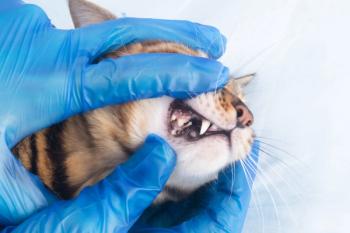
H1N1 strikes cheetah, more domestic cats
National Report -- While the death toll of H1N1-infected domestic cats continues to rise, officials at Safari West Wildlife Preserve in Santa Rosa, Calif., have announced that a cheetah caught the pandemic virus last month.
National Report
-- While the death toll of H1N1-infected domestic cats continues to rise, officials at Safari West Wildlife Preserve in Santa Rosa, Calif., have announced that a cheetah caught the pandemic virus last month.
Gijima, an 8-year-old cheetah at Safari West, was coughing and showed signs of lethargy and lack of appetite in mid-November. The zoo's director had recently seen a story in USA Today about a domestic cat catching H1N1 and ordered testing for Gijima. The cheetah's test was positive, but it completely recovered in the following weeks. Three other cheetahs at the facility were ill, but only the one case was confirmed to be H1N1, according to the American Veterinary Medical Association (AVMA).
The Association of Zoos and Aquariums responded to the incident by reminding the public that humans cannot contract H1N1 from animals.
Zoo employees aren't sure how Gijima was infected, but believe an animal handler was the original source of infection. They continue their standard practices of frequent hand-washing, sterilizing food bowls and tools such as rakes, and stepping in foot baths on the way in and out of animal enclosures.
In domestic cat news, two more U.S. cats, one in Oregon and one in Pennsylvania, have died as a result of complications from H1N1 influenza. A number of other cats have been confirmed to be infected but are being treated, according to the AVMA.
Newsletter
From exam room tips to practice management insights, get trusted veterinary news delivered straight to your inbox—subscribe to dvm360.



